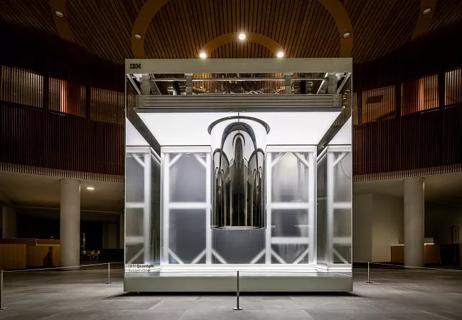Aim is to use molecular data to find and personalize targets for preventive therapies

The American Heart Association (AHA) has awarded Cleveland Clinic a $3.7 million grant for three related research projects aimed at improving patient outcomes through prevention of atrial fibrillation (AF) development and progression.
Advertisement
Cleveland Clinic is a non-profit academic medical center. Advertising on our site helps support our mission. We do not endorse non-Cleveland Clinic products or services. Policy
The four-year, competitive award will support basic, clinical and translational research by a multidisciplinary team led by electrophysiologist Mina Chung, MD, Director of Cleveland Clinic’s Center of Excellence for Cardiovascular Translational Functional Genomics.
Cleveland Clinic is one of six U.S. institutions selected to receive funding from the AHA’s new $28 million Atrial Fibrillation Strategically Focused Research Network. The Cleveland Clinic site will be named the Sarah Ross Soter Center for Atrial Fibrillation Research.
“Once atrial fibrillation starts, it typically worsens over time, with episodes becoming longer and less likely to cease on their own,” says Dr. Chung. “Despite intense effort, there are few effective and safe therapies for it. With this significant AHA support, we are focusing on developing novel therapies for preventing the development and progression of AF. Our new center will use molecular data to find, choose and personalize targets for preventive therapies.”
The award supports continuation of the work of a Cleveland Clinic team that’s been collaborating for nearly 20 years, publishing more than 40 major papers together and making significant contributions to the understanding of AF mechanisms and cardiac genomics. The following three specific research projects will be funded:
Advertisement
“We are very pleased that the AHA selected us to participate in this research consortium to take our work from the lab back to patients’ bedsides to prevent worsening of this disease,” says Dr. Chung. “New therapies for AF are critical, and we are hopeful this award will have an extraordinary impact by leading to improved, personalized therapies for patients with this debilitating condition.”
“This work, coupled with an already robust clinical AF research program — including novel mapping/ablation technologies, among other projects — further cements Cleveland Clinic as a premier research center for cardiac arrhythmias,” notes Daniel Cantillon, MD.
Advertisement
Advertisement

First full characterization of kidney microbiome unlocks potential to prevent kidney stones

Researchers identify potential path to retaining chemo sensitivity

Large-scale joint study links elevated TMAO blood levels and chronic kidney disease risk over time

Investigators are developing a deep learning model to predict health outcomes in ICUs.

Preclinical work promises large-scale data with minimal bias to inform development of clinical tests

Cleveland Clinic researchers pursue answers on basic science and clinical fronts

Study suggests sex-specific pathways show potential for sex-specific therapeutic approaches

Cleveland Clinic launches Quantum Innovation Catalyzer Program to help start-up companies access advanced research technology